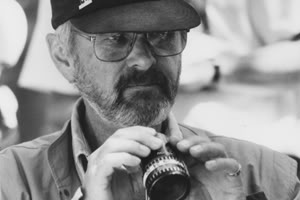Until the modern history of the West began during the Renaissance, people always believed in spiritual reality. For them, the question of whether God existed in some form or another never arose. God, spirits, angels populated their world. The rebirth of Greek and Roman civilization, the Renaissance, changed that in the West and challenged people throughout the world.

The Renaissance opened the door in Europe and Italy for philosophers to think of reality without God, without eternal spiritual life. The Church of Rome, which spawned the Renaissance through the writings and teachings of Thomas Aquinas, opened the door for people to think of reality without God. The Church had no choice. Islam, with its splendid practical theology based upon Aristotle, and its powerful military, threatened to over run and annihilate Roman Catholicism. The Islamic armies had turned back the Crusaders from their venture to recapture the Holy Land, conquering the once mighty bastion on Christianity, Constantinople, in the process.
The Church of Rome had to allow its priests to take nature seriously as a way of saving the Christian theology from the mighty Islamic theology as developed especially by Averroes. The Arabs had received the thought of Aristotle during Alexander the Great's campaign throughout Persia and into India. They incorporated Aristotle into their civilization for 1500 years while the West had all but forgotten his work.
Aristotle's view of reality contrasted starkly with the view of Socrates and Plato. Christianity had adopted Socrates's and Plato's view of reality and rejected Aristotle's view of reality. Socrates and Plato had a radically spiritual view of reality. So radical that they believed this world, the world of matter, had been created by a false god, the Demiurge. Only the world of the spirit, the realm of the archetype, is real. Aristotle thought differently. Only the world of nature is real. The world of spirit is illusion.

So, there you have it. That is the essence of the Culture Wars in a nutshell. One extreme side believes that ultimate reality is nature while the other extreme side believes that reality is God or spirit. Everyone finds themselves somewhere between those two extremes. This is the heart of the Culture Wars.
The Culture Wars began in the mid-1800s. At that time, any one advocating reality without God suffered condemnation yet the Enlightenment, which followed on the heels of the Renaissance, had prepared the way for many free thinkers, especially in Europe. Three giants arose to champion reality without God: Charles Darwin, Sigmund Freud, and Karl Marx.
The curious thing about the Culture Wars is that most people who take the side of Darwin, Freud, and Marx believe in God! There are those who fully advocate their atheism but they are few in number.
I find it baffling that a person can advocate the views of Darwin, Freud, and Marx yet believe in God! The basis of their thought is that the belief in God is detrimental to a healthy society, that religion must be eradicated for humanity to achieve utopia or well-being.

Darwin saw the belief of God in nature as childish, a belief that adult thinkers grew out of. Freud saw the belief in God as a neurosis. Marx believed religion the opiate of the people. When a person's view of reality is shaped by the perfect storm of Darwin, Freud, and Marx, they embrace a world view that sees nature as god, man as god, and society as god.
That view of realty has been quite strong for the past century or more. World communism burst upon the scene in the early 1900s, leading to the deaths of millions of people and the enslavement of millions more. Freud appeared on the world stage as the founder of atheistic psychoanalysis. Darwin emerged as the central figure of the atheistic evolution movement.
So, here we have it. The forces of atheism have been assaulting the bastions of religion. The view of reality without God has been in life and death combat with the view of reality with God. Let's call them the Children of Darkness and the Children of Light, to use Reinhold Niebuhr's concept.
The Children of Darkness had had an upper hand until the past 20 years or so. The fall of the Berlin Wall marked the end of Karl Marx's influence.
 One down, two to go. Freud and Darwin still exert a powerful influence upon people throughout the world. But they stand on increasingly shaky ground. Spiritual psychology, through people like Carl Jung, represent a powerful challenge to Freud. Darwin has been up against the ropes for a decade, especially with the challenge of the Intelligent Design movement.
One down, two to go. Freud and Darwin still exert a powerful influence upon people throughout the world. But they stand on increasingly shaky ground. Spiritual psychology, through people like Carl Jung, represent a powerful challenge to Freud. Darwin has been up against the ropes for a decade, especially with the challenge of the Intelligent Design movement.We are on the threshold of victory. When the three pillars of the atheistic view of reality--Marx, Freud, and Darwin--fall, the Culture Wars will be over. The immorality and corruption of American, and world-wide, culture will transform. Religious people around the world will throw off the chains that have enslaved them, they will be freed from an illusion, and they will evolve into a higher spiritual consciousness. Hmmmm, do those phrases sound familiar?



































